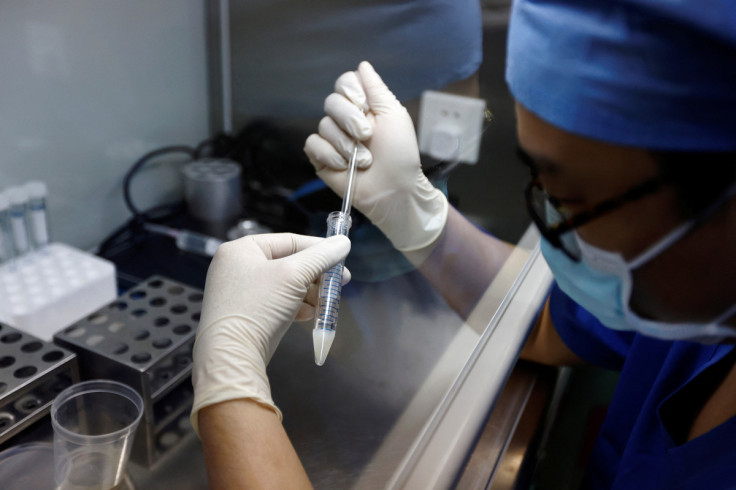
British people are going to get some relief in stroke prevention and care as the UK government launched a programme to investigate new medicines.
The Medicines and Healthcare Products Regulatory Agency (MHRA) announced on February 13 that the Yellow Card Biobank will be researching Direct Oral Anticoagulants, a new type of stroke prevention medicine.
The Yellow Card Biobank is a pilot project launched by the MHRA and Genomics England, a company wholly owned by the Department for Health and Social Care to address the issue of medicine side effects in the UK.
The Biobank will be working towards understanding how the genetic constitution of people has an impact on the safety of medicines starting with the Direct Oral Anticoagulants. This is part of the long-term agenda of the UK government towards building personalised medicine approaches.
UK scientists working on the project will use the genetic information stored in the Yellow Card Biobank to understand the side effects of stroke prevention medicines and if those side effects are influenced by a specific genetic trait. This will help doctors and healthcare professionals to personalise prescriptions as they become aware of patients' genetic conditions through rapid screening tests.
The MHRA is trying to enhance patient safety in the UK through this process of personalised prescription as NHS patients will get the safest medication based on their genetic constitution. Earlier in January, the MHRA launched a new regulatory roadmap to ensure UK medical devices uphold patient safety.
NHS data has revealed that Adverse Drug Reactions (ADRs), or side effects are one of the biggest burdens for the NHS as one in 16 people is hospitalised due to side effects. The rapid screening tests will let healthcare professionals screen for these adverse drug reactions and prevent them from happening.
This comes at a time when the NHS revealed last year that it has improved stroke treatment rates by using AI for medical image monitoring.
For stroke prevention medicines, the MHRA has asked people to come forward and report any incidents of excessive bleeding through the Yellow Card Scheme. Those patients who experienced the side effects of the Direct Oral Anticoagulants and submitted the yellow cards will be asked to send blood samples for further research.
The collected blood samples from the patients with the stroke prevention medicines' side effects will be used to analyse if their genetic makeup makes them at risk for excessive bleeding. This project aims to reduce the occurrence of such serious side effects in stroke patients.
A nurse will collect blood samples from the patients at their homes or a location convenient for the patient for sequencing and adding it to the Biobank. The identity of the participants wouldn't be disclosed as the data will be de-identified before it is added to the National Genomic Research Library where UK researchers can access data for research.
Stroke prevention medicines pilot project a step towards personalised medicine
Speaking about the Yellow Card Biobank pilot project, the Chief Executive of MHRA, Dr June Raine said: "We are excited to launch the second phase of the Yellow Card Biobank, which demonstrates that we are at the absolute forefront of innovation in the field of drug safety monitoring."
Dr Raine explained how side effects of medicines could be prevented through genetic testing as "almost a third of adverse reactions to medicines could be prevented".
"The Yellow Card Biobank will help us move towards our goal of personalised medicine. Getting involved with this important initiative means you will help more people use medicines safely," Dr Raine added.
Meanwhile, Professor Matt Brown, the Chief Scientific Officer at Genomics England said: "We are delighted to be taking this next step in our partnership with the MHRA towards harnessing the power of genomics to break new ground in medicine safety."
Professor Brown explained how "many adverse drug reactions are influenced by underlying genetic risk factors" and the Yellow Card Biobank pilot study will help in gaining "a deeper understanding of these genetic influences that in turn could help patients to receive the best and safest treatment possible".
The pilot Biobank was initially launched in June 2023 where the initial phase was to check for side effects to the medicine Allopurinol. The adverse reactions to this medicine caused rare severe skin reactions including Stevens-Johnson Syndrome (SJS) and Toxic Epidermal Necrolysis (TEN). Allopurinol is an FDA-approved drug used to control uric acid levels in blood.
So far, the MHRA hasn't recruited patients for both the topics of the Allopurinol side effects study. Through the Yellow Card Scheme, the genetic material of the UK patients participating in the pilot study will start from the 2024 spring and the initial findings will be published by 2025.
Genomics England will provide the facility for gene sequencing and the storage of genetic material using its infrastructure.







